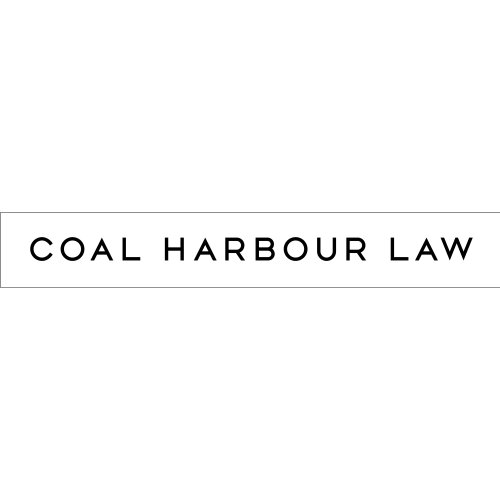Best Natural Resources Lawyers in Vancouver
Share your needs with us, get contacted by law firms.
Free. Takes 2 min.
List of the best lawyers in Vancouver, Canada
About Natural Resources Law in Vancouver, Canada
Vancouver, located in the province of British Columbia, is endowed with a wealth of natural resources, including forestry, mining, hydrocarbons, fisheries, and water resources. Natural resources law in Vancouver encompasses regulations and legal standards that govern the exploration, utilization, conservation, and management of these resources. These laws aim to balance economic growth with environmental sustainability and respect for Indigenous rights. Given Vancouver's diverse ecosystem and rich resource base, natural resources law plays a crucial role in ensuring that resource development aligns with environmental protection and community well-being.
Why You May Need a Lawyer
There are several situations where individuals or businesses might require legal assistance related to natural resources in Vancouver:
- Resource Development Projects: Navigating the complex web of permits, regulations, and stakeholder consultations during project initiation.
- Environmental Compliance: Ensuring that operations meet local, provincial, and federal environmental laws to avoid fines and legal challenges.
- Indigenous Rights: Engaging with Indigenous communities and addressing concerns related to traditional land rights and resource sharing.
- Dispute Resolution: Handling conflicts arising from resource usage between businesses, government bodies, and other parties.
- Land Use and Zoning: Understanding laws around land use planning and zoning, crucial for resource-based developments.
Local Laws Overview
The legal landscape for natural resources in Vancouver is shaped by multiple levels of legislation and policy:
- British Columbia Forest Act: Governs the management of forest resources, establishing guidelines for harvesting and conservation.
- Environmental Management Act: Regulates waste management and pollution control, ensuring environmental protection during resource exploitation.
- Mines Act: Sets out requirements for the exploration and extraction of mineral resources, focusing on safety and environmental stewardship.
- Water Sustainability Act: Addresses water use and conservation, crucial in a region where water resources are both abundant and vital.
- Indigenous Land Rights: Reflected in multiple legal frameworks recognizing the rights and titles of Indigenous peoples to manage and benefit from natural resources on their traditional lands.
Frequently Asked Questions
What constitutes "natural resources" under Canadian law?
Natural resources typically include minerals, water, forests, fish, and hydrocarbons. They are resources extracted from the Earth that have significant economic and social value.
How do Indigenous rights impact natural resource activities in Vancouver?
Indigenous rights, protected under the Canadian Constitution, often require consultation and accommodation in resource development projects. Missing Indigenous consultations can lead to legal challenges and project delays.
What permits are required for starting a mining project in Vancouver?
Permits vary depending on the scale and scope of the project but often include an exploration permit, an environmental assessment, and a mining lease or license.
Are there restrictions on water usage for businesses in Vancouver?
Yes, water usage is regulated under the Water Sustainability Act, which requires licenses for significant withdrawals to ensure sustainable use.
What role do municipal governments play in natural resource management in Vancouver?
Municipalities can regulate land use and zoning that affects resource development in their jurisdictions, impacting operations through bylaws and local plans.
Can natural resources be privately owned in Canada?
While surface lands can be privately owned, sub-surface rights (like minerals) are typically owned by the Crown. Private ownership requires specific agreements or purchases.
How are environmental violations penalized in Vancouver?
Penalties for non-compliance with environmental laws can include fines, suspension of permits, and legal action, depending on the severity of the violation.
What legal challenges do renewable energy projects face?
Challenges include navigating land use conflicts, obtaining permits, meeting environmental assessment requirements, and negotiating benefits with Indigenous communities.
Is it necessary to conduct an environmental assessment for all resource projects?
Not all projects require an assessment; it depends on the size, type, and potential impact of the project as determined by local regulations and federal laws.
What are the penalties for illegal logging in British Columbia?
Illegal logging can result in heavy fines, seizure of timber, and legal prosecution. It is regulated under the Forestry Act to protect forest resources.
Additional Resources
For further assistance and resources related to natural resources in Vancouver, consider reaching out to the following organizations:
- Ministry of Forests, Lands, Natural Resource Operations and Rural Development: Provides guidance on provincial resource policies.
- Environmental Assessment Office: Responsible for assessing the environmental impacts of major projects in British Columbia.
- Indigenous Relations and Reconciliation Ministry: Focuses on developing partnerships and agreements with Indigenous communities.
- Local Legal Aid Societies: Offer services and counsel for individuals and businesses seeking legal advice related to natural resources.
Next Steps
If you need legal assistance in the field of natural resources in Vancouver, consider taking the following steps:
- Consult a Lawyer: Contact legal experts specializing in natural resources to discuss your specific situation.
- Understand Your Rights: Familiarize yourself with your legal rights and obligations under local laws.
- Prepare Documentation: Gather any pertinent documents related to your natural resource matter to streamline consultations.
- Engage with Stakeholders: If applicable, begin consultations with relevant parties, including government offices and Indigenous communities.
- Stay Informed: Keep up to date with any changes in laws or regulations that may affect your situation.
Lawzana helps you find the best lawyers and law firms in Vancouver through a curated and pre-screened list of qualified legal professionals. Our platform offers rankings and detailed profiles of attorneys and law firms, allowing you to compare based on practice areas, including Natural Resources, experience, and client feedback.
Each profile includes a description of the firm's areas of practice, client reviews, team members and partners, year of establishment, spoken languages, office locations, contact information, social media presence, and any published articles or resources. Most firms on our platform speak English and are experienced in both local and international legal matters.
Get a quote from top-rated law firms in Vancouver, Canada — quickly, securely, and without unnecessary hassle.
Disclaimer:
The information provided on this page is for general informational purposes only and does not constitute legal advice. While we strive to ensure the accuracy and relevance of the content, legal information may change over time, and interpretations of the law can vary. You should always consult with a qualified legal professional for advice specific to your situation.
We disclaim all liability for actions taken or not taken based on the content of this page. If you believe any information is incorrect or outdated, please contact us, and we will review and update it where appropriate.












